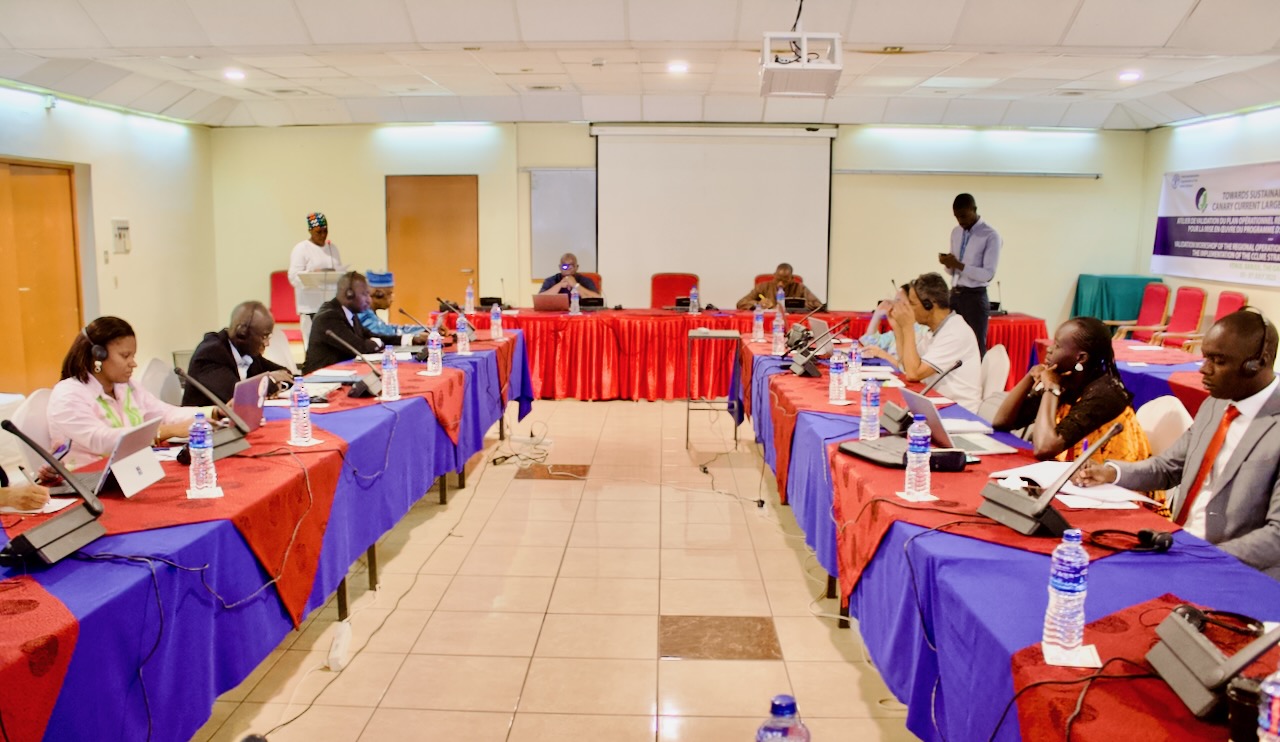Validation workshop of the Regional Operational Plan and National Action Plans
Pave the Way for Sustainable Management of Canary Current Large Marine Ecosystem

Participants picture
 Banjul, The Gambia - On July 5th and 6th, 2023, the regional coordination unit held the validation workshop of the Regional Operational Plan and National Action Plans for the implementation of the SAP as part of its ongoing Project "Towards the Sustainable Management of the Canary Current Large Marine Ecosystem (CCLME) - Initial Support to the Implementation of the Strategic Action Programme (SAP)." The meeting brought together 17 participants, representing beneficiary countries and partners.
Banjul, The Gambia - On July 5th and 6th, 2023, the regional coordination unit held the validation workshop of the Regional Operational Plan and National Action Plans for the implementation of the SAP as part of its ongoing Project "Towards the Sustainable Management of the Canary Current Large Marine Ecosystem (CCLME) - Initial Support to the Implementation of the Strategic Action Programme (SAP)." The meeting brought together 17 participants, representing beneficiary countries and partners. The objectives of this Regional Workshop were twofold: to validate and adopt the Regional Operational Plan and the National Action Plans, and to ensure full coordination and coherence between activities at both regional and national levels.
The meeting spanned two days, during which several activities were conducted.
During the opening ceremony, speeches were delivered by the Representative of the Gambian Government and the FAO Representative in The Gambia, emphasizing the significance of collaborative efforts in achieving sustainable marine ecosystem management. Dr. Sidibe, the Regional Coordinator for the CCLME project, provided a detailed overview of the workshop's objectives and expected results.
Day one of the workshop focused on discussions and action points. Key recommendations included the need for countries to synergize their NAPs and align them with the regional plan to avoid duplication. Concerns were raised about the procedures for obtaining Global Environment Facility (GEF) funding for NAP implementation, and participants were assured of support from the CCLME project in this regard.
Country presentations from Cape Verde, Guinea Conakry, Guinea Bissau, Mauritania, Morocco, Senegal, and The Gambia provided insights into their respective NAPs and commitments towards the SAP. It was noted that Mauritania would need additional support to develop national activities in alignment with the regional plan.
The day two witnessed the presentation of the proposed Regional Operational Plan, which was followed by discussions on its content and budget estimation. The importance of coordination and harmonization of activities at the national level was emphasized to avoid redundancy.
The workshop concluded with a commitment to effective and efficient implementation of the regional operational plan and the NAPs at both regional and national levels. By validating and adopting these plans, stakeholders have taken a significant stride towards ensuring the sustainable management of the Canary Current Large Marine Ecosystem. The shared vision of a healthy and thriving marine environment can now be pursued through coordinated efforts and mutual support among all partners involved in the CCLME project.
